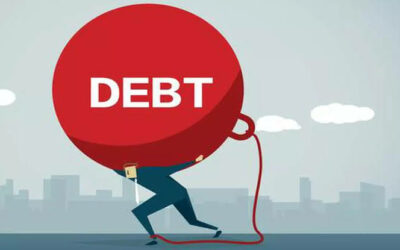The international image of any country is an important determinant of how well the country is doing at home and abroad. International image provides a basis for self-re-appraisal in the event of any bad image.
Even though image, be it national or international, is a function of perception, which, again, can be a resultant of objectivity or subjectivity of purpose, there is no disputing the fact that a good image constitutes a source of good will and patronage for a country. It is considered by investors in determining where to direct investment funds. It also brings the level of unfriendliness down. It is therefore quite understandable if every person and every government seeks to promote, at all times, a better image for himself or itself, nationally and internationally.
Nigeria’s international image has been of major concern to the people and government of Nigeria. The image has been shaped by a number of different factors since 1960. These factors include, in the main, Nigeria’s policy of always defending African interests, Nigeria’s big market for Euro-American finished products, Nigeria’s oil boom, Nigeria’s anti-apartheid policy, Nigeria’s policy of technical assistance, What can be truly said of Nigeria’s international image since 1960 is that it has not witnessed any significant change. It is the dynamics that have been changing. The attitude of foreign countries has not really changed. What we are witnessing is the effort of Nigeria’s international partners to make Nigeria dance to their whims and caprices. Put differently, Europe and America, as well as their new challengers in Africa (China, Japan, Korea, etc) all want to use Nigeria as a source of raw materials, as well as a major market for their industrial products. This economic need requires them to manage their relations with Nigeria in such a way as to engage only in some limited verbal condemnations that do not have any significant implication for economic interests. For instance, when France supported Biafra against Nigeria, it was the politico-diplomatic ties that were strained. Nothing happened to economic relations. Apartheid policy provided another example of double standard at the level of European countries, many of which condemned apartheid but also intensified their economic relations with South Africa at the same time. Since Nigeria was against any country that was hob-nobbling with South Africa, the attitude of Europeans and their allies has been that of openly condemning but secretly supporting apartheid South Africa.
Nigeria’s Image, 1960-1967
The major dynamics of Nigeria’s international image in this period are the Congolese crisis, French atomic tests, assassination of the Togolese President, Mr. Sylvanus Olympio, and more importantly, the political crisis in the former Western region of Nigeria.
While Nigeria’s active participation in the Congolese crisis was internationally praised, especially in light of the good performance of the Nigerian contingent, the killing of President Olympio, in Togo, prompted the redefinition of Nigeria’s attitude to the principle of non-interference in the domestic of affairs of other countries. It was a major argument raised by Dr. Jaja Wachukwu, then Nigeria’s Minister of External Affairs, who took an exception to the principle. He considered that Togo was a friendly country to Nigeria and Nigeria could not, therefore, close her eyes to the assassination of a friendly leader under the pretext of the principle of non-interference. This policy attitude sent a strong message to the international community, especially in light of Article 2, paragraph 7 of the UN Charter which requires that there should not be any form of interference in the domestic affairs of other countries. Nigeria was supposed to respect this clause like all other member states of the UN. The attitude of the international community was then to begin to monitor whether Nigeria would be working against the purposes of the UN.
Without doubt, Nigeria’s international image was predicated on a good note as from October 1, 1960 when Nigeria acceded into national sovereignty. At the home level, most, if not all Nigerians, were happy about Nigeria’s independence. Nigerians were no longer to witness the celebration of ‘Empire Day’ in Nigeria. Independence meant that, to a great extent, Nigerians would henceforth be directly responsible for the conduct and management of their affairs. However, this was not to be so for various reasons, especially in light of the aforementioned dynamics that impacted in different ways on the international perception of Nigeria.
First, Nigeria opposed French atomic tests in the Reggane area of the Sahara in February and April 1960. Nigeria protested against the tests through the United Kingdom in light of her dependent status by then. However, Nigeria cautioned against the renewal of French tests in Africa after Nigeria’s independence. Indeed, Nigeria promised to take unfriendly actions against France in the event of France’s disregard for Nigeria’s concerns. When Nigeria became independent on October 1, 1960 and France launched a third test in Africa, Nigeria strained her diplomatic relations with France while other countries that opposed the tests did not. Ghana, for instance, did not.
Nigeria’s opposition to the French atomic tests similarly sent different signals to the world. Nigeria was first seen as a major defender of Africa’s interests. Secondly, Nigeria was also seen as a potential source of threats to Euro-American interests, not just in Nigeria, but in Africa as a whole. Consequently, when Nigeria sought the associate membership of the then European Economic Union, France put stumbling blocks on the way. Even though Lagos played host to the signing ceremony of the agreement that never was, and in spite of the fact that all arrangements were made and the French representative was in Lagos for the purposes of the agreement, French refusal to sign the agreement put an end to it as the rule of unanimity required for the agreement to have the force of law was missing. Thus, Nigeria’s international image as at the time of independence in 1960 became a yardstick with which many European countries measure and define their attitudinal policies vis-à-vis Nigeria. The image, as noted above, is good. It is that of a new player on the international scene, with the biggest population in Africa, with the biggest arable land in Africa, with several Oxford- and Cambridge-trained technocrats, and in fact, a player with abundant natural resources still begging for exploitation.
In fact, it should be recalled that Nigeria protested against the use of the French feminine definite article, “la” for Nigeria. The Government of Nigeria only accepted its use in the context of Federation of Nigeria (la fédération du Nigéria). Explained in other words, Nigeria argued that she had already come of age and should therefore be treated as such internationally. Nigeria wanted to be addressed as Le Nigéria and not la Nigéria. The rationale for this attitude, though still difficult to understand and justify, clearly pointed to the fears of many world leaders that Nigeria would be difficult to push here and there. Nigeria considered that la Nigéria implies feministic inferiority which Nigeria was not prepared to accept. In any case, the French Government had no qualms with this position and had accepted it. Since then, Nigeria has been referred to as Le Nigéria in the Francophone world.
Nigeria’s Image: 1970-1979
During and after Nigeria’s civil war, Nigeria’s international image was shaped by four major factors: sustaining a 30-month fratricidal civil war without external borrowing; General Gowon’s policy of no victor and no vanquished; Nigeria’s non-retaliatory policy vis-à-vis the countries that assisted the secessionists to undermine Nigeria’s national unity, and most importantly, Nigeria’s anti-apartheid struggle. The prosecution of the war without going with caps in hand to beg for financial assistance was evidence of solvency and source of respect, but also an indirect invitation to the international community to come and do business with a united and strong Nigeria in the making. The policy of no winner and no loser allowed for prompt healing of wounds and the foundation laying for the policy of the 3 Rs: Reconciliation, Rehabilitation and Reconstruction. The international community expected a hostile attitude from Nigeria but this was never the case at home and abroad. The international community was to also learn what makes Nigeria ‘thick’ at the time. Nigeria’s decision to challenge the Americans and, particularly, the British on their collaboration with apartheid South Africa is worthy of note. The British did not expect the nationalisation of the British Petroleum and that of the Barclays Bank by Nigeria. The implication of this was that the international community had to thread more softly in its relations with Nigeria. Although several students of Nigeria’s foreign policy have argued that this was made possible because of Nigeria’s oil boom, the fact of Nigeria’s determination not to have any compromise with apartheid cannot be set aside on the altar no-funding or poverty. Consequently, Nigeria’s international image was still very positive and based on respect.
Nigeria’s Image: 1979-1999
In the period 1979-1999, Nigeria’s international image was adversely and positively affected by the expulsion of illegal immigrants from Nigeria, democratisation, remilitarisation, Bolaji Akinyemi’s Consultation Doctrine and Abacharisation of Nigerian politics. At the level of expulsion of illegal immigrants from Nigeria, Africans looked at the decision of Nigeria, the chief advocate of regional unity and integration, to expel other Africans as very unfriendly and unAfrican. Nigeria’s image in Africa was somehow soiled. The administration of Alhaji Shehu Shagari held illegal immigrants in Nigeria responsible for the various societal ills and crimes. The handing over of power from General Olusegun Obasanjo to Alhaji Shehu Shagari in 1979 brought much respect for Nigeria. Professor Akinyemi’s ‘consultation doctrine, made known at the 1986 Kuru Conference, raised many national and international questions on whether Nigeria’s foreign policy would henceforth be based on reciprocity and whether Nigeria really had the means to sustain that policy. At the level of image, everyone developed greater interests as to where Nigeria was heading to. More so that Professor Akinyemi also came up with the concept of Medium Powers which led to the organisation of the Lagos Forum. The Big powers saw this development as an emerging conscious challenge to their status. Perhaps most importantly, the Abacharisation of politics in Nigeria prompted the many sanctions taken against Nigeria. The Abacha government killed Saro Wiwa in deliberate defiance to the plea of the international community. Nigeria was then seen to be unnecessarily arrogant. Abuse of human rights in Nigeria was the hallmark under the Abacha government. The international community therefore took an exception to this and blacklisted Nigeria. While this hostile attitude vis-à-vis Nigeria was on, economic exploitation of Nigerian mineral resources did not stop. Export of oil to Europe and America was not affected. In fact, the situation only provided additional opportunity for greater incursion into the conduct and management of internal affairs of Nigeria. Additionally, Nigeria’s image as a big market was not tainted.
Nigeria’s Image, 1999-2007
Since 1999, the international community has been increasingly courting and encouraging Nigeria to assume more responsibility in the maintenance of world peace and security, but without wanting to accept Nigeria’s eligibility for the a permanent seat at the UNSC. The major dynamics of Nigeria’s international image in this period are: return to democracy in Nigeria, Nigeria’s commitment to African integration efforts, the total battle declared against indiscipline and corruption, increasing investment-friendly environment, as well as Nigeria’s policy stand against international terrorism. More significantly, Nigeria is still seen as a country of great potentials.
Thus, as at 2007, without any jot of doubt, Nigeria has every reason to joyfully mark forty-seven years of her independence. National unity and territorial integrity was seriously threatened in the period 1967-1970 but not to the extent of total destabilisation of the polity. Nigeria is still a united country in 2007, waxing stronger but yet to know what her main problem is all about. The international community has maintained its confidence in a greater Nigeria in the making, despite its criticism of Nigeria. Even when the European Union frowns at the manner of electoral politics in Nigeria, such frowning is only to ensure that Nigeria continues to live up to the expectation of Europe and America. The international community realises that any problem that destabilises Nigeria will also adversely affect its own interests. This is why the international community should not allow any threats to the stability and survival of Nigeria.
By Bola A. Akinterinwa
Vie Internationale
Sunday, september 30, 2007



